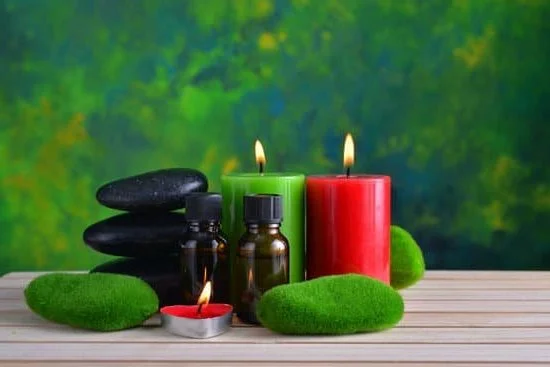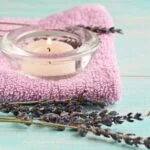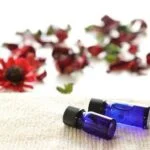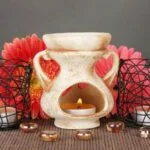Aromatherapy has been gaining popularity in recent years as a natural and holistic approach to wellness. This section will provide an introduction to the practice, its historical origins, the science behind it, and the many benefits it offers for physical and mental health. From its ancient roots to modern-day applications, aromatherapy has proven to be a valuable tool in promoting overall well-being.
Aromatherapy is the use of essential oils and aromatic compounds from plants to improve a person’s health or mood. The practice has been used for centuries by various cultures around the world, and today it continues to be embraced as a safe and effective alternative or complementary therapy. In this article, we will explore the origins of aromatherapy and its evolution into the modern practice we know today.
In addition to discussing its history, this section will also delve into the science behind aromatherapy and how it works to benefit both physical and mental health. Understanding the physiological effects of different aromatic compounds can shed light on why aromatherapy is good for you and how it can be incorporated into your daily routine.
Whether you are new to aromatherapy or already familiar with its benefits, there is much to learn about this ancient practice that continues to enrich our lives today.
History of Aromatherapy and Its Origins
Aromatherapy has been used for centuries, with its origins dating back to ancient civilizations such as the Egyptians, Greeks, and Romans. The practice of aromatherapy involves using essential oils extracted from plants to promote overall well-being.
The use of aromatic plant extracts for medicinal and spiritual purposes can be traced back thousands of years in various cultures around the world. The Egyptians were known to use essential oils for embalming and in religious ceremonies, while the Greeks used them for their healing properties.
The term “aromatherapy” was coined in the 20th century by a French perfumer and chemist, René-Maurice Gattefossé, after he accidentally discovered the healing properties of lavender oil when he applied it to a burn on his hand. This led him to further research into the benefits of essential oils, paving the way for modern aromatherapy practices.
The history of aromatherapy is rich and diverse, with traditions from different cultures contributing to its evolution. It is fascinating how this ancient practice has stood the test of time and continues to be relevant in today’s modern world. The historical use of essential oils for various purposes provides valuable insight into how aromatherapy has been beneficial for physical and mental health throughout the ages.
| Benefit | Description |
|---|---|
| Physical Health | Aromatherapy can help alleviate symptoms such as headaches, muscle pain, and digestive issues. |
| Mental Health | Essential oils can have a calming effect on the mind, reducing stress and anxiety. |
The Science Behind Aromatherapy
Aromatherapy is a holistic healing treatment that uses natural plant extracts to promote health and well-being. The practice of aromatherapy utilizes essential oils extracted from various plants to enhance physical and mental health. These essential oils can be inhaled, applied to the skin, or ingested in some cases.
The science behind aromatherapy lies in the powerful compounds found in essential oils. When these oils are inhaled, they stimulate the smell receptors in the nose, which then send messages through the nervous system to the limbic system – the part of the brain that controls emotions.
This stimulation can have a profound impact on one’s emotions and overall well-being. Additionally, when essential oils are absorbed into the skin during massage or other applications, they can provide localized benefits as well.
Research has shown that aromatherapy can have a range of positive effects on both physical and mental health. For example, certain essential oils have been found to have antimicrobial properties, making them effective in fighting off infections. Other oils have been shown to reduce stress, anxiety, and depression. Additionally, aromatherapy has been used to alleviate pain and improve sleep quality.
Incorporating aromatherapy into your daily routine can be as simple as diffusing your favorite essential oil at home or using scented bath products. With its wide-ranging benefits for both physical and mental health, it’s clear that aromatherapy is a valuable tool for promoting overall wellness.
| Benefits of Aromatherapy | Description |
|---|---|
| Physical Health | Aromatherapy has been found to have antimicrobial properties which may help fight off infections. |
| Mental Health | Research shows that aromatherapy can reduce stress, anxiety, and depression. |
| Overall Wellness | Aromatherapy offers a wide range of benefits for both physical and mental health. |
Benefits of Aromatherapy for Physical Health
Aromatherapy has been used for centuries as a natural way to promote physical and emotional well-being. The use of essential oils for aromatherapy can have various benefits for physical health, from easing muscle tension to reducing inflammation. In this section, we will explore the specific ways in which aromatherapy can be beneficial for physical health.
Relief From Pain and Inflammation
Certain essential oils, such as lavender, peppermint, and eucalyptus, have been shown to have analgesic properties and can help provide relief from pain and inflammation. When used in aromatherapy, these oils can be inhaled or applied topically, allowing for their therapeutic effects to take place. By using aromatherapy as a natural alternative to over-the-counter pain medications, individuals can reduce their reliance on pharmaceuticals and their potential side effects.
Improvement in Sleep Quality
Another benefit of aromatherapy for physical health is its ability to improve sleep quality. Essential oils like chamomile and jasmine have calming properties that can promote relaxation and help individuals fall asleep more easily. By diffusing these oils in the bedroom or adding a few drops to a warm bath before bedtime, individuals can experience better sleep quality without the need for prescription sleep aids.
Boosting Immune System Function
The use of certain essential oils in aromatherapy has been found to have immune-boosting properties. Oils such as tea tree, lemon, and oregano contain antimicrobial compounds that may help protect against harmful pathogens. Regular use of these oils in aromatherapy practices may support overall immune system function, helping the body fend off illnesses more effectively. Overall, incorporating aromatherapy into one’s daily routine can have numerous positive effects on physical health.
Benefits of Aromatherapy for Mental Health
Aromatherapy has been used for centuries to improve mental health and overall well-being. The use of essential oils in aromatherapy can have a significant impact on reducing stress, anxiety, and depression. Here are some of the key benefits of aromatherapy for mental health:
1. Stress Relief: Certain essential oils, such as lavender, chamomile, and rosemary, have been shown to have calming and relaxing effects on the mind and body. These scents can help alleviate feelings of stress and promote a sense of tranquility.
2. Anxiety Reduction: Aromatherapy has been found to be effective in reducing symptoms of anxiety. Oils like bergamot, frankincense, and ylang-ylang can help induce a sense of calm and ease nervousness.
3. Mood Enhancement: Essential oils like citrus scents (such as lemon, orange, or grapefruit) are known for their uplifting properties that can help improve mood and combat feelings of sadness or depression.
Incorporating aromatherapy into your daily routine can be simple and effective in promoting mental wellness. Diffusing essential oils in your home or office, using them in massage oils or bath products, or simply inhaling them directly from the bottle can all contribute to improving your mental health.
It’s important to note that while aromatherapy can be beneficial for mental health, it should not replace professional treatment for serious mental health conditions. If you are dealing with severe anxiety or depression, it’s essential to seek the guidance of a qualified healthcare professional.
Different Types of Aromatherapy Oils and Their Uses
Aromatherapy uses a variety of essential oils derived from plants to promote holistic healing and well-being. Each type of oil has its own unique properties and benefits, making them suitable for different purposes. Here are some of the most commonly used aromatherapy oils and their specific uses:
1. Lavender Oil: Known for its calming and soothing effects, lavender oil is often used to reduce stress and anxiety, promote relaxation, and improve sleep quality.
2. Peppermint Oil: With its invigorating scent, peppermint oil is often used to alleviate headaches, boost energy levels, ease digestive issues, and improve focus and concentration.
3. Eucalyptus Oil: This refreshing oil is known for its decongestant properties, making it effective in clearing up respiratory congestion and alleviating symptoms of colds and allergies.
4. Tea Tree Oil: With its powerful antibacterial and antifungal properties, tea tree oil is commonly used to treat skin conditions such as acne, eczema, and fungal infections.
5. Lemon Oil: Known for its uplifting citrus scent, lemon oil is often used to improve mood, boost immune function, reduce nausea, and stimulate mental clarity.
6. Chamomile Oil: This gentle floral oil is renowned for its calming effects on the mind and body, making it useful for reducing stress, promoting relaxation, relieving muscle tension, and soothing skin irritation.
By understanding the distinct properties of each aromatherapy oil and their potential benefits, individuals can choose the most suitable oils to address their specific physical or mental health concerns. Whether through diffusing the oils in a room or using them topically through massage or inhalation, incorporating aromatherapy into one’s daily routine can provide a natural way to support overall health and well-being.
How to Incorporate Aromatherapy Into Your Daily Routine
Aromatherapy is a practice that involves using essential oils and other natural plant extracts to promote health and well-being. Incorporating aromatherapy into your daily routine can have numerous benefits for both your physical and mental health. With its ability to reduce stress, improve sleep, and boost mood, aromatherapy can be a valuable addition to your self-care regimen.
Diffusing Essential Oils
One of the simplest ways to incorporate aromatherapy into your daily routine is by diffusing essential oils in your living or working space. A diffuser can disperse the aroma of essential oils throughout the air, allowing you to breathe in their therapeutic properties. Whether you want to create a calming atmosphere with lavender oil or increase focus and concentration with peppermint oil, diffusing essential oils is an easy way to experience the benefits of aromatherapy.
Topical Application
Another way to integrate aromatherapy into your daily routine is by applying essential oils topically. Diluting essential oils with a carrier oil and using them in massage, bath soaks, or as part of a skincare regimen can provide targeted relief for various physical ailments and promote relaxation.
For example, applying diluted eucalyptus oil to the chest can help relieve congestion and improve breathing, while adding a few drops of chamomile oil to a warm bath can help soothe sore muscles and calm the mind.
Aromatherapy Jewelry
Aromatherapy jewelry such as diffuser necklaces and bracelets provide a convenient way to experience the benefits of essential oils throughout the day. These pieces of jewelry are designed with small compartments where you can place an absorbent pad infused with your favorite essential oil. As you wear the jewelry, you’ll be able to enjoy the aroma of the essential oil while also benefiting from its therapeutic effects on both your physical and mental state throughout the day.
Incorporating aromatherapy into your daily routine doesn’t have to be complicated or time-consuming. By integrating these simple practices into your life, you can begin to experience firsthand how beneficial aromatherapy can be for both your physical and mental well-being.
Precautions and Safety Measures When Using Aromatherapy
Aromatherapy has been used for centuries as a natural way to improve both physical and mental well-being. However, it is important to exercise caution when using aromatherapy, as essential oils are highly concentrated and potent. Here are some precautions and safety measures to keep in mind when incorporating aromatherapy into your routine.
First and foremost, it is crucial to always dilute essential oils before applying them to the skin. Undiluted essential oils can cause skin irritation, so it is recommended to mix them with a carrier oil such as coconut or almond oil. Additionally, some essential oils should be avoided altogether during pregnancy or if you have certain medical conditions. It is essential to do thorough research or consult with a healthcare professional before using any new essential oil.
Furthermore, when diffusing essential oils in the air, it is important to do so in a well-ventilated space. Prolonged exposure to concentrated amounts of essential oils through inhalation can lead to respiratory issues. It is also crucial to keep essential oils out of reach of children and pets, as some oils can be toxic if ingested.
Lastly, while aromatherapy can offer numerous benefits for both physical and mental health, it is important to use it mindfully and in moderation. Overuse of certain essential oils can lead to sensitization or allergic reactions. Always start with a small amount and observe how your body responds before increasing usage.
Overall, when practiced safely and responsibly, aromatherapy can be a valuable addition to your holistic health routine.
Conclusion
In conclusion, aromatherapy offers a holistic approach to overall well-being, benefiting both physical and mental health. The use of essential oils has been practiced for centuries, with origins dating back to ancient civilizations. The science behind aromatherapy lies in the ability of the fragrant molecules to interact with the brain and body, influencing emotions and triggering responses that promote relaxation or alertness.
Aromatherapy has shown numerous benefits for physical health, including relief from headaches, muscle pain, and respiratory issues. Additionally, it can also aid in boosting immunity and promoting better sleep. When it comes to mental health, aromatherapy has been found to reduce stress and anxiety levels, improve mood, and enhance cognitive function. These benefits make aromatherapy a natural and effective way to support overall wellness.
To incorporate aromatherapy into your daily routine, there are various methods such as diffusing essential oils, using them in massages or baths, or even inhaling them directly. However, it is important to practice caution and follow safety measures when using essential oils as they are highly concentrated substances.
With proper precautions in place, aromatherapy can be a wonderful addition to your self-care routine, providing a natural means of promoting balance and harmony for both the mind and body. This summarizes how is aromatherapy good for you across different aspects of holistic health.
Frequently Asked Questions
What Are the Benefits of Aromatherapy?
Aromatherapy has numerous benefits, including stress relief, improved mood, relaxation, and better sleep. Different essential oils can also be used to alleviate various symptoms such as headaches or nausea.
Why Is Aromatherapy Effective?
Aromatherapy is effective due to the ability of certain scents to impact the limbic system, which is the part of the brain that controls emotions and memories. This can lead to a calming or energizing effect on the body and mind.
What Does Aromatherapy Do to the Brain?
Aromatherapy can have various effects on the brain, including triggering the release of neurotransmitters like serotonin and dopamine, which can improve mood and reduce stress. Certain scents can also influence brain wave activity, promoting relaxation or alertness.

Are you looking for a natural way to improve your health and wellbeing?
If so, aromatherapy may be the answer for you.





